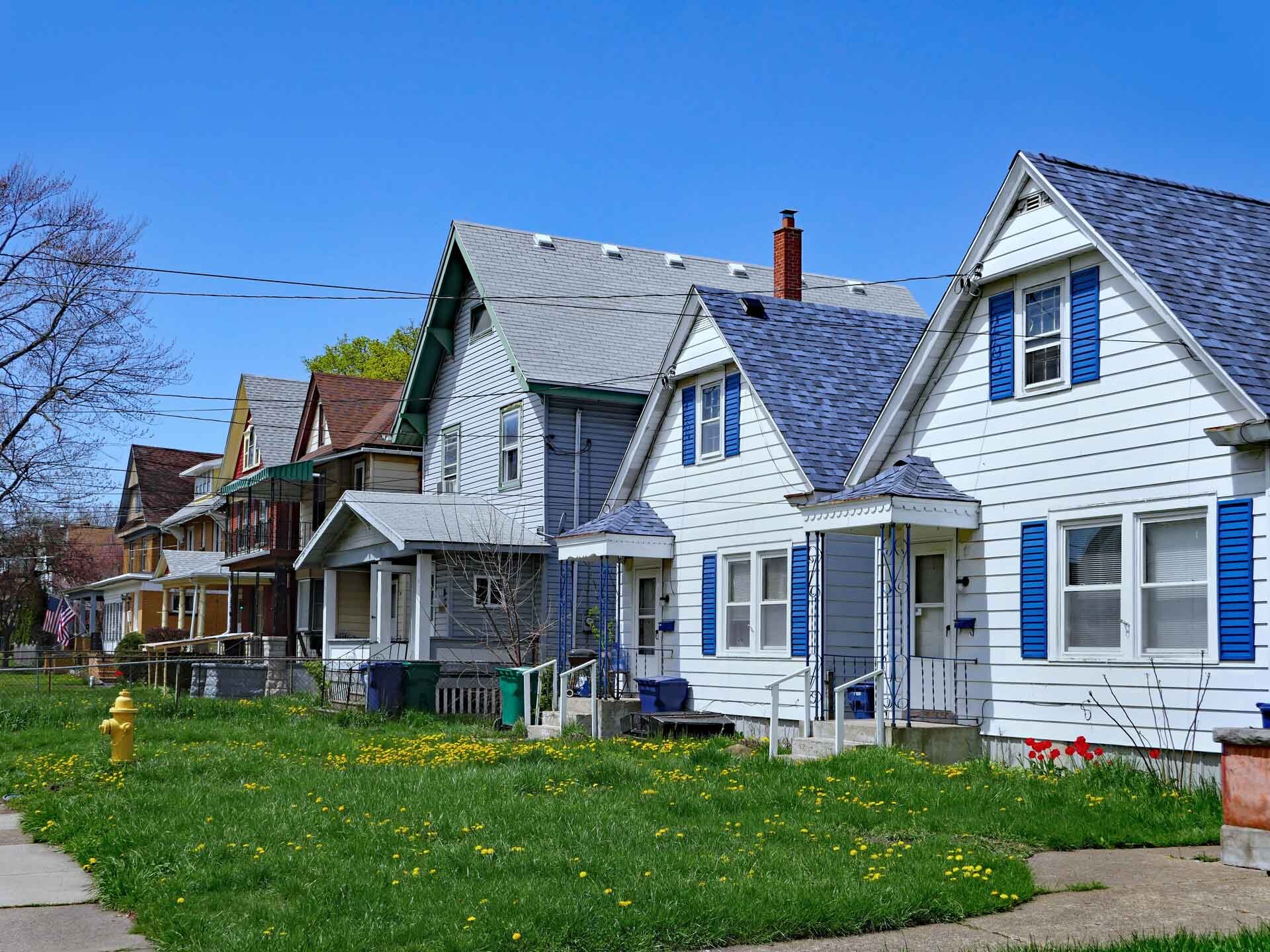Foreclosure occurs when a homeowner is unable to make their mortgage payments on time and has no way to catch up on the missed payments. Because a mortgage is a legal agreement between you and your lender, once you’ve defaulted on the loan, the lender can auction off the property to cover any outstanding debts, leaving you homeless and with terrible credit.
No one wants to receive a notice of foreclosure and yet, in a nationwide study, nearly 1 million Americans were afraid of losing their homes (U.S. Census Bureau Household Pulse Survey, fielded from July 27 to Aug. 8, 2022). Foreclosure can occur from a number of reasons, including:
- Job loss and loss of income
- Divorce or death of a spouse or partner
- Mounting debt, including medical and credit cards
- Moving without being able to sell the home
- Natural disaster
Bright Home Offer is a local company operating in North Carolina that has built their business by buying distressed houses and properties in the area for cash. They promise competitive cash offers without the hassle of dealing with real estate agents, title companies, traditional bank financing, and more!
What is Foreclosure?
Imagine you or your spouse suddenly lose a source of income—whether due to a layoff, illness, or an unexpected life event. While your monthly bills stay the same, your ability to pay them doesn’t. As the financial pressure builds, keeping up with your mortgage might no longer be realistic. Even if you eventually find work again, the missed payments and mounting debt can be overwhelming. If the mortgage remains unpaid, your lender may begin the foreclosure process—a legal proceeding where the bank reclaims and sells your home to recover the outstanding loan balance.
Foreclosure can feel like a distant threat until it begins, and once it starts, the consequences are serious. It can damage your credit for years and make securing housing or financing extremely difficult in the future.
How Long Do You Have To Get Out of Your House After Foreclosure?
The foreclosure timeline varies from state to state, but the general steps remain consistent: missed payments, public notice of default, foreclosure filing, property auction, and eventually, eviction. Depending on your state’s laws, this entire process could take anywhere from 3 months to nearly a year.
Foreclosure can occur through two different methods—judicial (involving the court) or non-judicial (without court oversight), and each has its own timelines and legal requirements. Regardless of the process type, you’ll begin receiving official notices through mail, phone calls, and even posted notices on your door. These warnings are designed to give you a chance to resolve the issue before losing your home.
Some states require lenders to offer mediation or options like loan modifications before moving forward with a foreclosure sale. Even after a foreclosure auction, you may have a short window—called a redemption period—where you could reclaim the property, depending on your local laws.
The sooner you act, the more options you have. Whether it’s selling, refinancing, or negotiating with the lender, there may still be time to avoid foreclosure entirely.
The Different Types of Foreclosure
There are two different types of foreclosure you may experience: nonjudicial foreclosure or judicial foreclosure.
What Is Non-Judicial Foreclosure?
A non-judicial foreclosure is often the fastest and least expensive method available for lenders to foreclose on a property in North Carolina. Unlike judicial foreclosure, this process does not involve the court system. Instead, it follows a specific legal procedure laid out in your state’s foreclosure statutes. If your mortgage includes a “power-of-sale” clause—which is common in a deed of trust—your lender can initiate foreclosure without having to file a lawsuit.
This clause gives the trustee (a neutral third party assigned at loan closing) the authority to sell your home if you default on the loan. Because non-judicial foreclosures bypass the courts, they can typically be completed much faster, sometimes in just a few months, depending on state timelines. This makes them the preferred route for lenders in states where the law allows it.
While this process may save time and legal expenses for the lender, it also limits a homeowner’s opportunities to contest the foreclosure in court. That’s why it’s critical to act quickly—once the lender records a Notice of Default and publishes a Notice of Sale, the clock starts ticking. If you’re facing a non-judicial foreclosure in North Carolina, you may still have options to sell your home, catch up on payments, or negotiate a solution before the property is sold at auction.
What Is Judicial Foreclosure?
In states where judicial foreclosure is required, your lender must officially file a lawsuit with the court to get permission to sell your home. This legal process ensures the foreclosure sale is supervised by the court. Once the lawsuit is filed, the lender will send you a formal notice called a summons, which informs you of the case and gives you a chance to respond.
Ignoring this notice isn’t an option—if you don’t respond within the timeframe specified, the court will likely rule in favor of the lender by default, allowing them to move forward with the foreclosure sale. After the sale, if the home sells for less than what you owe on your mortgage, you could still be responsible for paying the remaining balance, known as a deficiency judgment.
Unlike traditional real estate sales, foreclosure auctions often result in properties selling below market value. Even if your home is well-maintained and worth more than your outstanding loan balance, the auction price may not reflect that, potentially leaving you with a sizable debt after the sale. Because judicial foreclosures involve court procedures, higher costs, and longer timelines, many lenders prefer to pursue the quicker, less expensive non-judicial foreclosure whenever possible.
Get an offer today, sell in a matter of days.
How to Sell Your House Before Foreclosure in North Carolina
Let’s break down a few ways you can sell your house, depending on your time frame and situation:

What Is Judicial Foreclosure?
In certain states, the foreclosure process requires the lender to take legal action by filing a lawsuit with the court to obtain approval to sell your home. This judicial foreclosure ensures the entire process is overseen by the court system, offering a layer of legal protection for both parties. After the lawsuit is initiated, you will receive an official notification called a summons, which outlines the claims against you and provides an opportunity to contest the foreclosure.
Failing to respond to the summons within the court-mandated deadline typically results in the court granting the lender’s request by default, allowing them to proceed with selling your property. Once the home is sold at foreclosure, if the sale price falls short of your remaining mortgage balance, you may be held liable for the difference, which is known as a deficiency judgment.
Foreclosure sales conducted through judicial auctions usually don’t follow the same market conditions as traditional real estate sales, often leading to the property being sold for less than its fair market value. This can leave homeowners owing substantial amounts even after losing their home. Due to the complexity, expense, and length of judicial foreclosure cases, many lenders opt for the faster, less costly non-judicial foreclosure process whenever the law permits it.

Short Sale
When the amount you owe on your home exceeds its current market value, a short sale may be necessary. This situation arises when your mortgage balance is higher than what your property could realistically sell for. For instance, if you owe $200,000 on your mortgage but your home’s market value is only $150,000, a short sale becomes a potential solution. While it might seem like a viable option, the process is often lengthy and complicated.
The first step in a short sale is obtaining approval from your lender. To qualify, you must demonstrate financial hardship by submitting supporting documents such as pay stubs, tax returns, medical bills, or other relevant paperwork. If your hardship is due to reduced or lost income, lenders typically require proof that this income loss is permanent or unlikely to improve soon. Once your lender agrees to the short sale, you’ll need to hire a real estate agent and possibly an attorney who are experienced with short sales. Keep in mind, their fees are usually comparable to those charged during a traditional home sale.
If your foreclosure process has not advanced too far and you have maintained open communication with your lender, they may be more willing to approve a short sale. This option helps the lender avoid the costly and time-consuming foreclosure process, while allowing them to recover part of the loan balance. However, even after completing a short sale, the impact on your credit can be significant and long-lasting.
Although a short sale might help you avoid foreclosure and pay off some debt, it can negatively affect your credit score similarly to bankruptcy. Lenders report the delinquency and the short sale on your credit history, which can hinder your ability to secure credit cards, auto loans, or mortgages for anywhere from five to seven years following the sale. This makes rebuilding your financial standing a challenging journey for many homeowners.

Sell Your House AS-IS to A Cash Buyer
If you’re facing a tight deadline to sell your house before foreclosure leads to auction and eviction, don’t worry—there are solutions available! While you could list your home with a real estate agent or negotiate a short sale with your lender, one of the fastest and simplest options is selling directly to a reputable cash buyer who understands your urgency.
Here are some key advantages of selling your home as-is to a cash investor:
- Close quickly, often within days, avoiding long waiting periods.
- Save money by eliminating realtor commissions and closing fees.
- No need to stage, market, or hold open houses to find a buyer.
- Sell your home exactly as it is—no repairs, cleaning, or updates required.
- Bypass the uncertainty and delays of traditional sales or short sales.
Choosing to sell to a cash buyer not only helps you avoid the stress and consequences of foreclosure auctions but can also provide enough funds to settle outstanding debts. This option allows you to move forward with a clean slate and less financial burden, giving you peace of mind and the chance to start fresh.hly mortgage payment and debt hanging over your head is one of the best gifts you can give yourself!
Can You Stop Foreclosure Once it Starts?
Pay Off Your Loan & Fees
You’ve found yourself in a difficult situation. Your debt is adding up while your finances remain the same. It’s time to get serious and look at ways to pay down your debt quickly. Do you have any items you can liquidate? Maybe you have friends or family that can gift you money or provide you with a loan until you get back on track. If you are serious about paying down your debt and stopping foreclosure, you may need a financial professional to help you restructure your budget. Use one of these solutions or combine them all to help climb that avalanche of debt and get back to living a life free of stress.
Declare Bankruptcy
As a last resort, bankruptcy may help you stop the foreclosure of your home but it comes with a high cost. The bankruptcy process is complex and will require a lawyer that specializes in bankruptcy law. If the court approves your petition, you will be entered into a government-approved credit counseling program and the bankruptcy will be reported on your credit report for 7 years. A bankruptcy affects all areas of your life, including when you try to purchase a car, apply for a credit card or bank account, and can disqualify you from future rentals.
The Homeowner Affordability and Stability Plan (HASP)
If your debt is higher than your income, you may be eligible for the Homeowner Affordability & Stability Plan (HASP). HASP is a loan modification program targeted at borrowers who are at risk of foreclosure due to insufficient income. This government program was designed to help homeowners in the United States restructure their monthly payments to fit a limited budget. Apply for the program here to see if you qualify.
Related Articles
Sell Your House Fast to a Cash Buyer
Need to sell your home quickly but don’t have the luxury of waiting 30 days—or longer—for a traditional sale to close? Concerned that a short sale might severely damage your credit? Looking for a way to settle your debts swiftly and avoid the stress of the bank pursuing foreclosure? Selling to a direct cash buyer could be the perfect solution for you!
By partnering with a reputable cash investor in your area, you’ll work with professionals who have the funds ready to buy your property in its current condition. This means you can bypass the slow, complicated foreclosure process and avoid eviction or auction, all while protecting your credit score.
While selling to a cash buyer might mean accepting less than full market value, the benefits often outweigh this trade-off, including:
- Lightning-fast closing timelines—sometimes within just days.
- No costly real estate agent commissions or hidden fees.
- No need to make repairs, updates, or even clean your home.
- Freedom from inspections, appraisals, and buyer contingencies.
Most importantly, a cash sale allows you to sell your home before the lender schedules an auction, giving you more control over the sale price and helping you avoid the steep discounts lenders usually accept to liquidate foreclosed properties quickly.
We Buy Houses in Foreclosure & Pre-foreclosure–
Get Your Offer Today!
Does the idea of finally walking away from a property without the storm cloud of foreclosure hanging over your head? Contact a real professional at Bright Home Offer to find out more and get a fair cash offer for your property today.

